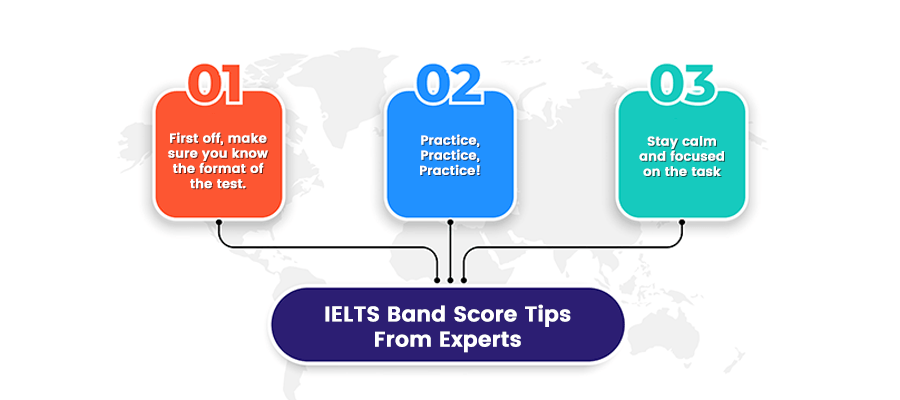IELTS Band Score Requirements: What You Need to Know?

The IELTS is an English language proficiency test that’s recognized by universities and employers all over the world. If you’re looking to study or work in an English-speaking country, the IELTS is the test for you.
The IELTS is made up of four sections: listening, reading, writing, and speaking. Each section is scored on a scale of 0-9, with 9 being the highest score. Your overall score is the average of your four section scores.
So what’s the minimum score you need to pass? Each institution sets its own requirements, so it’s best to check with the school or employer you’re targeting. But generally speaking, a band score of 6 or higher is considered acceptable.
What Is a Band Score?
In order to understand IELTS Band Score Requirements, you need to understand first what a band score is. A band score is a numeric score that ranges from 1 to 9 that reflects your level of English language proficiency.
It’s important to note that your band score is based on your performance on all four sections of the IELTS test—reading, writing, listening, and speaking. So it’s not just based on your overall score, but on your performance in each individual section as well.
Your band score is also relative to other test takers. In other words, a band score of 7 for you might be different than a band score of 7 for someone else.
How Are Band Scores Calculated?
Have you ever wondered how your band score is calculated? It’s actually a pretty complex process, and there are a few factors that are taken into account.
Your band score is based on the average of your four test scores, and each score is measured on a scale of 0 to 9. The examiner will also award you with a band score for pronunciation, fluency, and grammar.
So how is your final band score calculated? It’s done by taking the average of all your test scores, and then converting it to the IELTS scale. Easy enough, right?
What Is the Minimum Band Score Required for Each Listening, Reading, Writing, and Speaking?
In order to be eligible for most English-speaking study programs and visas, you will need to achieve a minimum band score of 6.5 in all four sections of the IELTS test for your post graduation and 6.0 band for graduation program. This requirement can vary from country to country and program to program, for example candidates seeking PR in Canada need to achieve 8777 band score in order to apply in express entry pool.
Your band score in each section is determined by your performance on the test as a whole. So even if you do really well in one section, but not so well in another, your overall band score will still be 6.5.
Don’t worry though—with a little practice, you can easily achieve the score you need. Remember to focus on your weaknesses and take plenty of mock tests to get comfortable with the exam format.
What Are the Benefits of Having a High Band Score?
So you’re thinking about taking the IELTS test? Great!
But what are the benefits of having a high band score? Well, first and foremost, it can help you get into the college or university of your dreams. A high band score proves that you have the language skills to thrive in an academic setting.
It can also help you get a job in your chosen field. Many employers require a minimum IELTS band score for certain positions, so it’s important to be aware of these requirements before you take the test.
Finally, a high band score can open up doors for you in the world of travel. Many countries require a certain IELTS score for visa applications, so if you’re planning on traveling overseas, make sure you know what the requirements are.
How Can I Improve My IELTS Band Score?

So you want to improve your IELTS band score? It’s not as hard as you might think. Here are a few tips to get you started:
- Practice, practice, practice. The more you write and speak English, the better you’ll be able to perform under pressure.
- Get a good night’s sleep before the test. Being well-rested will help you stay calm and focused on the task at hand.
- Use a pencil to complete the test. This will allow you to make changes if necessary.
- Stay positive and don’t give up. With a bit of hard work, you can definitely improve your score.
Conclusion
To get into your dream college or secure that big promotion, you may need to take the IELTS exam and pass with a band score of at least 7.0. But what does that mean? How can you make sure you achieve the score you need?
This article will tell you everything you need to know about the IELTS band score requirements, including what each band score corresponds to, how the exam is scored, and some tips on how to improve your score. So, whether you’re just starting your IELTS preparation or are nearing the test date, read on for essential information about IELTS band scores






